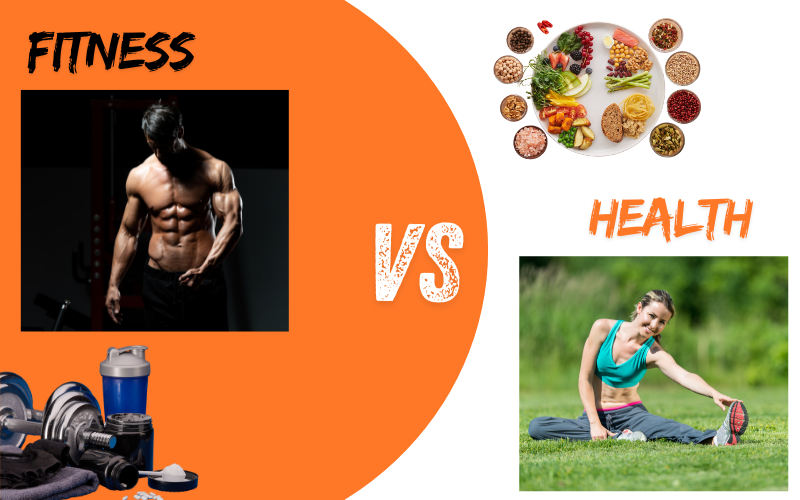Fitness and health are often used interchangeably, but they are not the same. Understanding the difference can help you set better goals for your body and mind. Whether you're starting your journey or already committed, knowing how fitness and health connect can make all the difference.
Table of Contents
ToggleWhat is Fitness?
Fitness refers to your physical ability to perform tasks. It’s about how well your body functions during exercise and daily activities. When you’re fit, your body can handle challenges like running, lifting, or even carrying groceries.
Fitness focuses on:
- Strength: Your ability to lift and move heavy objects.
- Endurance: How long you can perform activities without getting tired.
- Flexibility: Your range of motion in muscles and joints.
- Cardiovascular Health: How well your heart and lungs work during activity.
Being fit doesn’t mean you need to be an athlete. It’s about maintaining a balance that suits your lifestyle.
What is Health?
Health is a broader concept. It refers to your overall well-being—physical, mental, and emotional. You might not be physically fit, but you can still be healthy by maintaining good habits and avoiding illness.
Key aspects of health include:
- Physical Health: A body free from illness or disease.
- Mental Health: The ability to handle stress and enjoy life.
- Emotional Health: Managing emotions and maintaining relationships.
In simple terms, health is about how you feel, while fitness is about what you can do.
The Connection Between Fitness and Health
Fitness is a part of health, but you don’t have to be a fitness enthusiast to be healthy. However, being active does improve your overall health by:
- Reducing the risk of chronic diseases like diabetes and heart problems.
- Boosting mental clarity and reducing stress.
- Improving sleep quality and energy levels.
Can You Be Fit but Not Healthy?
Yes, you can be physically fit but unhealthy. For example, a person might be able to run long distances (a sign of fitness) but suffer from poor mental health or have a diet that lacks essential nutrients.
Can You Be Healthy but Not Fit?
Similarly, you can be healthy but not fit. For instance, someone might have good mental and physical health but struggle to climb stairs or lift heavy objects due to a lack of regular exercise.
How to Balance Fitness and Health
Here are a few tips to improve both:
- Stay Active: Aim for 30 minutes of exercise most days.
- Eat Right: Focus on a balanced diet rich in whole foods.
- Sleep Well: Get 7-8 hours of sleep every night.
- Manage Stress: Practice relaxation techniques like meditation or yoga.
- Visit Your Doctor: Regular check-ups ensure your health is on track.
Final Thoughts
Fitness and health are connected, but they are not the same. Fitness focuses on your body’s ability to perform, while health is about overall well-being. To live a happy and fulfilling life, aim to balance both.
Start small—add a brisk walk to your day or swap out junk food for a healthier snack. Every step brings you closer to a healthier and fitter you!

